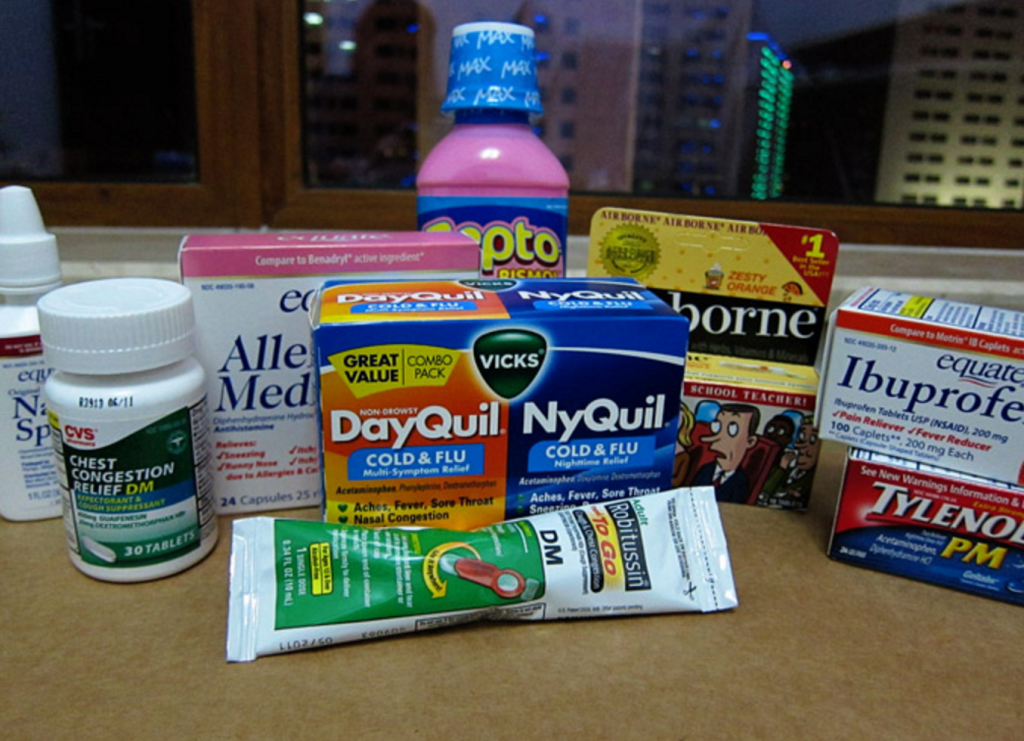Leaving so soon? Wait up. You wouldn’t want to get sick while you’re out enjoying in the sun do you? Let’s take a look at what to include in your travel first aid kit.
Keep in mind that you don’t need all medicines from A-Z to be safe on your journey. What you need is a range of medicines that will tackle the most common health issues you might encounter while you’re out and about.
Don’t forget that the medicines you take will have a limited lifetime. See ‘use by’ dates, and ask the pharmacy for advice to make sure when a particular medicine will be ineffective for use. Here’s a lineup to get you started:
Common cold and throat infection. Perhaps the most common disease travelers encounter, you should bring a set of paracetamol, ibuprofen, and sore throat remedies with you in ANY TRAVEL destination.
Range of allergies. Medicines containing antihistamines work great against allergies, skin rashes, itching, and insect bites. If you will need adrenaline (doctor’s orders), take Jext, EpiPen, Emerade or equivalent brands. Antihistamines such as chlorphenamine causes drowsiness, so take precaution if you’ll drive to your destination. Loratidine and cetirizine varieties are non-sedating, keep in mind.
Diarrhea. If you develop diarrhea while traveling, it’s best to keep yourself hydrated by drinking oral rehydration solutions, bringing loperamide with you, and drinking lots of fluid. A prescription drug by the name of ciprofloxacin is also available.
Constipation and upset stomach. Traveling equals eating some unfamiliar food, which can cause constipation. You may use laxative in the short term, they come as suppositories, syrups, or tablets. You can avoid constipation by eating a high fiber diet and fluids.
Stomach acid and heartburn. If you suffer from stomach acid, and burning sensation (heartburn) when consuming sharp-tasting foods and drinks, bring an antacid with you. Upon return you should ask to be tested for helicobacter, a bacterium which causes heartburn.
Pain. Take painkillers with you to treat headache, muscle pain, menstrual pain, or toothache. Medicines containing aspirin will do aside from the paracetamol and ibuprofen earlier.
Sores and blisters. Bring a skin-disinfecting solution with you to clean any cut, sores, and small wounds. A small bottle of chlorhexidine will do wonders. Antiseptic wipes are also available.
Inflammation and infection. If you believe you’ll need antibiotics when travelling abroad, you must discuss it first with your doctor before leaving. Your doctor will prescribe what you need. In some parts of the world, you may purchase antibiotics without prescription, and without the need for a doctor visit. But if possible, you should consult a doctor before taking antibiotics as taking the wrong dosage can lead to antibiotic resistance.
Bandages and plasters. These items are useful to have in case of an accident. Blisters can be easily mended with plasters, available from your local pharmacy.
Sunburn. To prevent this awful skin issue, always bring a high SPF sunblock cream, especially when visiting tropical countries.
Vomiting. The most important point is replacing lost fluids. This may be caused by food you ate or travel sickness. For the latter, take travel sickness tablets with you.
Thermometer and tweezers. A small digital thermometer will do. Useful when you suspect high temperature due to fever. Tweezers can be used for removing splinters and insect stings in the skin.



